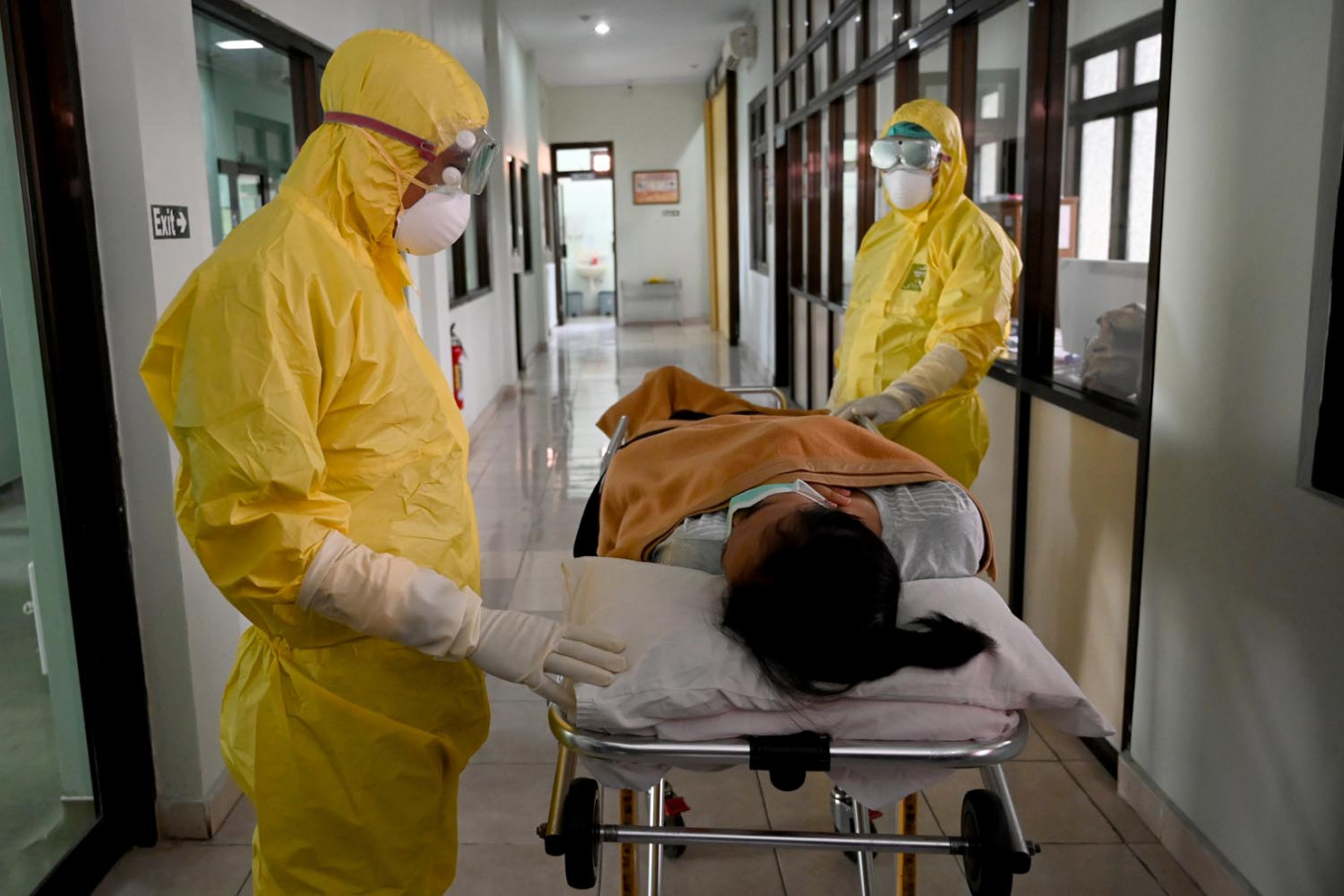Popular Reads
Top Results
Can't find what you're looking for?
View all search resultsPopular Reads
Top Results
Can't find what you're looking for?
View all search resultsIndonesia's health system on the brink as coronavirus surge looms
Health experts say Indonesia faces a surge in coronavirus cases after a slow government response masked the scale of the outbreak in the world’s fourth most populous country.
Change text size
Gift Premium Articles
to Anyone
 Health workers wearing protective gear take part in an exercise in handling a suspected patient at Sanglah hopital in Denpasar, Indonesia's resort island of Bali, on February 12, 2020. - The number of fatalities from China's COVID-19 coronavirus epidemic jumped to 1,113 nationwide on February 12 after another 97 deaths were reported by the national health commission. (AFP/Sony Tumbelaka)
Health workers wearing protective gear take part in an exercise in handling a suspected patient at Sanglah hopital in Denpasar, Indonesia's resort island of Bali, on February 12, 2020. - The number of fatalities from China's COVID-19 coronavirus epidemic jumped to 1,113 nationwide on February 12 after another 97 deaths were reported by the national health commission. (AFP/Sony Tumbelaka)
I
ndonesia has a significant deficit in hospital beds, medical staff and intensive care facilities as health experts warn that it is primed to become a new epicenter of the coronavirus pandemic, according to data reviewed by Reuters.
Health experts say Indonesia faces a surge in coronavirus cases after a slow government response masked the scale of the outbreak in the world’s fourth most populous country.
Indonesia has recorded 686 cases but the data is seen as understating the scale of infections because of a low rate of testing and a high mortality rate. Indonesia has reported 55 deaths, the highest in Southeast Asia.
A study by the London-based Centre for Mathematical Modelling of Infectious Diseases released on Monday estimates that as few as 2% of Indonesia's coronavirus infections have been reported. That would bring the true number to as many as 34,300, which is more than Iran.
Other modelers are projecting that cases could rise to as many as 5 million in the capital, Jakarta, by the end of April under a worst-case scenario.
"We have lost control, it has already spread everywhere," Ascobat Gani, a public health economist told Reuters. "Maybe we will follow Wuhan or Italy. I think we are in the range of that".
The government says the impact of the virus will not be that severe.
"We won't be like that," said Achmad Yurianto, a senior health ministry official, referring to comparisons with outbreaks in Italy and China.
"What's important is that we rally the people ... they have to keep their distance."
Doctors dying
Indonesia's health system compares poorly with those in other countries hit hard by the virus.
The country of more than 260 million people has 321,544 hospital beds, according to health ministry data. That is about 12 beds per 10,000 people. South Korea has 115 per 10,000 people, according to the World Health Organization (WHO).
In 2017, the WHO found Indonesia had four doctors per 10,000 people. Italy had 10 times more, on a per capita basis. South Korea has six times more doctors.
Yurianto said with proper social distancing measures there should not be a need for a large number of additional beds and that medical staffing was sufficient to tackle the virus.
However, Budi Waryanto, an epidemiologist from the University of Indonesia, told Reuters: "The hospitals are not ready to support the potential cases. Treatment will be limited."









